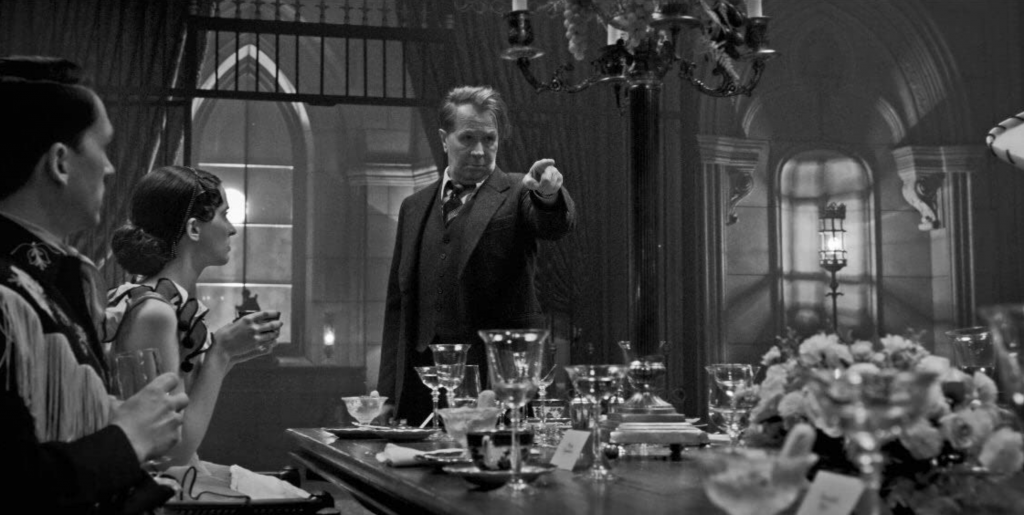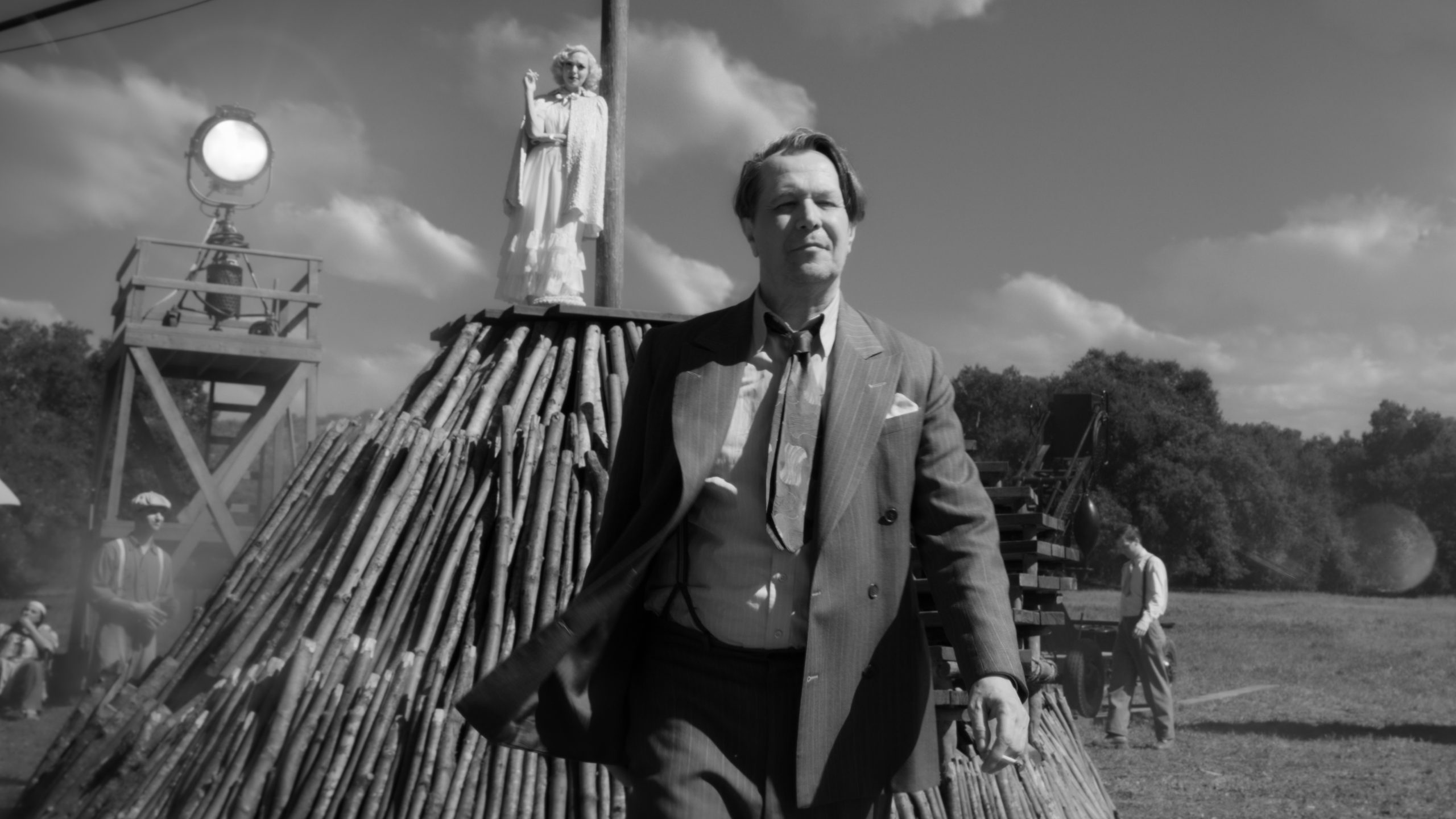Mank is one of those films that, despite having all of the elements for success, fall just short of being great. Directed by David Fincher and starring heavyweights such as Gary Oldman and Charles Dance, it focuses on disgraced screenwriter Herman J. Mankiewicz as he dwells on his past and writes the script for Citizen Kane, widely regarded as one of the greatest and influential films of all time.
Like Citizen Kane itself, Mank jumps between different points of time, showing how Mankiewicz (Gary Oldman) became bitter after falling out with formidable newspaper mogul William Randolph Hearst (Charles Dance) in 1934. In 1940, a bedridden Mankiewicz dictates the script of Citizen Kane to his secretary, Rita Alexander (Lily Collins). Along the way, we meet several Hollywood luminaries, such as Louis B. Mayer (Arliss Howard), David O. Selznick (Toby Leonard Moore) and Irving Thalberg (Ferdinand Kingsley), and Marion Davies (Amanda Seyfried), Hearst’s mistress turned fledgling dramatic actress.
Oldman is game as the alcoholic, self-destructive Mankiewicz, who’s consumed by guilt of being a bystander to his bosses’ greed and excess.
He has a dry comeback ready for every situation. Despite his disposition, he is earnest to a fault. He is shaken to his core when Upton Sinclair, a socialist candidate for the California gubernatorial race, is maneuvered out of winning by Hollywood bigwigs, who produce a series of fake newsreels to smear Sinclair. One of Mankiewicz’s friends, Shelly Metcalf (Jamie McShane) directed these newsreels, despite being a Sinclair supporter himself. The sense of betrayal causes Metcalf to take his life and sends Mankiewicz barrelling towards a dark path as well.
Amanda Seyfried also surprises as Davies, portraying a savvy woman who avoids thinking too much about the gray areas that her patron, Hearst, often deals with. Arliss Howard’s Mayer is suitably diabolical, yet against Dance’s Hearst he comes off as a slobbering number two.

Like all David Fincher movies, Mank is always interesting to look at. The black and white aesthetic is tastefully curated to resemble the movies of the era this film portrays. However, the film lacks compelling emotion. While there are several emotional beats, there is a distance between them and the audience. Nevertheless, the film manages to bring its conflicts to resolution by the end. A remorseful, bitter Mankiewicz alienates Hearst, who, to quote Mayer, only liked the way Mankiewicz talked, not the way he wrote. Meanwhile, in 1940, Mankiewicz clashes with Orson Welles (Tom Burke) over writing credit for the script.
Overall, Mank is probably middle of the road in terms of its place in Fincher’s filmography. It’s still a very good film, but it never rises above its narrative to provoke the audience.
If you are a film buff, then you might be enthralled by how the film treats the luminaries and power brokers of Old Hollywood. Mank isn’t exactly a love letter to the era, nor it is the equivalent of an angry rant. It sits somewhere in-between, giving more context to the creation of one of the most enduring pieces of cinema.






















